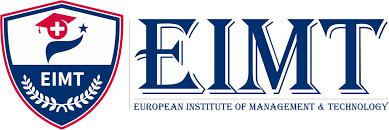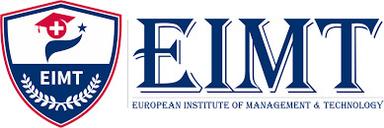Programme Key Points
Strategic 3-Year Degree Pathway : Complete your BCS in 36 months through a curriculum that blends foundational computer science principles with real-world applications.
Fully Online, Globally Accessible : Engage in a 100% online programme designed for flexibility, allowing you to study from anywhere at your own pace.
Career-Ready Technical Skillset : Develop competencies in programming, data analysis, and system design, preparing you for the dynamic tech industry.
Designed for Emerging Tech Professionals : Ideal for recent graduates and early-career individuals aiming to enter or advance in the field of computer science.
Industry-Relevant & Globally Benchmarked : Gain a qualification aligned with international tech standards, recognized by employers and academic institutions worldwide.
Programme Highlights
Specialized Elective Tracks
Choose from seven cutting-edge specializations in your final year.
Portfolio Development
Build a comprehensive portfolio showcasing your projects and skills, enhancing your employability in the tech sector.
Flexible Learning for Working Professionals
The programme's online format caters to individuals balancing work and study, offering asynchronous modules for maximum flexibility.
Programme Overview
The Bachelor of Computer Science (BCS) provided by EIMT is a fully online, 3-year programme designed to prepare students for tech-driven industries. It offers a strong foundation in core computer science areas—programming, algorithms, databases, cybersecurity and networks—while also exploring emerging fields such as AI, data science and cloud computing.
The curriculum emphasizes practical, project-based learning with real-world relevance. In the final year, students can specialize in high-demand areas like Machine Learning & AI, Data Science, Web & Mobile Development, Games Development, UX Design, Virtual Reality or IoT—allowing them to build a career-aligned portfolio.
Delivered asynchronously, the programme offers maximum flexibility for recent graduates and working professionals alike. The global online classroom encourages collaboration across cultures and time zones, building both technical and soft skills.
After finishing EIMT’s BCS degree, you will be ready for jobs like software developer, data analyst, or cybersecurity expert. You can also choose to study further in computer science or related fields.

Why Choose this Programme?
Most viewed and all-time top-selling services
Syllabus
36 Months Online Bachelor of Computer Science Programme

Year 1
Semester 1
- Computer Science Basics
Introduces fundamental concepts of computer science, including history, system components, and basic terminology. - Fundamentals of LINUX
Covers the basics of the Linux operating system, command line usage, file management, and essential utilities. - Digital Electronics
Explores digital logic, binary arithmetic, logic gates, flip-flops, and simple digital circuit design. - Database Management Systems
Introduces relational databases, SQL, data modeling, normalization, and basic database operations. - Computer Science Applications
Examines real-world applications of computer science across various industries and technologies. - Introduction to Programming Concepts
Presents programming principles, algorithms, and problem-solving using pseudocode and flowcharts. - C Programming
Introduces the C programming language, syntax, data types, control structures, functions, and basic input/output. - Computer Graphics
Introduces the basics of 2D and 3D graphics, rendering techniques, and graphics programming.
Semester 2
Introduction to Windows, its Features, Applications
Explores the Windows operating system, its key features, system management, and commonly used applications in academic and professional environments.
Software Design and Patterns
Introduces software design principles, common design patterns, and best practices for developing robust, maintainable software.
Computer Organisation Principles
Studies the structure and function of computer systems, including CPU, memory, I/O systems, and basic assembly concepts.
C++ Programming
Provides an introduction to object-oriented programming using C++, covering classes, objects, inheritance, polymorphism, and basic C++ syntax.
Foreign Language (Course 1)
Develops basic proficiency in a foreign language, focusing on vocabulary, grammar, and everyday communication.
Foreign Language (Course 2)
Continues foreign language learning, reinforcing previous knowledge and expanding practical language skills.
Technical Communication
Enhances technical writing and presentation skills for engineering and IT professionals.
Communication Skills
Improves verbal and written communication abilities for effective interaction in academic and workplace settings.
Year 2
Semester 3
Media Technologies
Explores technologies for creating, processing, and distributing multimedia content, including audio, video, and interactive media formats.
Advanced Programming Techniques
Covers advanced programming concepts such as algorithms, data structures, design patterns, and optimization techniques for efficient code development.
Artificial Intelligence
Introduces the principles and applications of artificial intelligence, including machine learning, neural networks, and intelligent agents.
Web Mining and Graph Analytics
Examines techniques for extracting information and patterns from web data and graph structures, including social network analysis and web content mining.
Data Mining
Focuses on methods for discovering patterns and knowledge from large datasets, including clustering, classification, and association rule mining.
Network Forensics
Studies techniques for investigating and analyzing network traffic to detect and prevent cyber threats and security breaches.
Distributed Systems
Explores the design, implementation, and management of distributed computing systems, including communication, synchronization, and fault tolerance.
Advanced Database Management
Extends database knowledge with advanced topics such as transaction management, indexing, query optimization, and big data technologies.
Semester 4
Network Security
Covers principles and techniques for securing computer networks, including cryptography, authentication, intrusion detection, and prevention strategies.
Special Topics in Computer Science
Introduces current and advanced topics in computer science, such as emerging technologies, research trends, and industry-specific challenges.
Web Application Development
Focuses on designing, developing, and deploying web applications using modern frameworks, tools, and best practices.
Biometrics
Explores biometric technologies for identification and authentication, including fingerprint, facial, and voice recognition systems.
Foreign Language
Continues foreign language instruction, building language proficiency and communication skills for academic and professional contexts.
Communication Skills
Enhances verbal and written communication abilities, focusing on effective presentation, negotiation, and interpersonal skills.
Internship Report
Involves documenting and reflecting on practical experience gained during an internship, including project participation, skills acquired, and professional insights.
Year 3
Core Courses
- Visual Programming & Visual Basics
Introduces visual programming concepts and the use of Visual Basic for application development.
- Software Engineering
Covers software development methodologies, project management, and the software development lifecycle.
- Software Testing
Teaches techniques for software testing, quality assurance, and validation of software products.
- Introduction to Web Technology
Provides an overview of web technologies, including HTML, CSS, client-server architecture, and basic web development practices.
Specialization Courses
Data Science Specialization
- Foundations
Build a strong base in data science concepts, tools, and workflows. Understand the data lifecycle and its role in business and technology.
- Fundamentals of Cyber Security, Linux & Networking
Learn the basics of secure computing, Linux commands, and network infrastructure — essential knowledge for data handling and protection.
- Data Analysis
Dive into data collection, cleaning, transformation, and interpretation using statistical methods and tools like Python or R.
- Ethical Hacking, Footprinting & Reconnaissance
Understand how to ethically gather information on systems and networks to identify vulnerabilities — critical for secure data science practices.
- Machine Learning Techniques
Study algorithms that allow computers to learn from data. Topics include regression, classification, clustering, and model evaluation.
- Enumeration, Vulnerability Analysis & System Hacking
Explore methods to identify, analyze, and mitigate system weaknesses, with an emphasis on responsible security testing.
Cyber Security Specialization
- Data Visualization
Learn to present complex cybersecurity data in clear, visual formats to support decision-making and threat analysis.
- Malware Threats, Network Attacks & Social Engineering
Understand different types of malware, common network attacks, and psychological manipulation techniques used to breach systems.
- Introduction to Artificial Intelligence
Discover how AI is applied in cybersecurity, including anomaly detection, threat prediction, and intelligent defense mechanisms.
- Denial-of-Service, Honeypots & Hacking Web Servers
Explore techniques used in DoS attacks, learn how honeypots are deployed to detect threats, and understand vulnerabilities in web servers.
- Hacking Wireless Networks, Mobile Platforms & IoT Devices
Study the methods and tools used to compromise wireless networks, smartphones, and Internet of Things (IoT) devices, along with security countermeasures.
- Cloud Security & Cryptography
Gain insights into securing cloud environments and using encryption techniques to protect sensitive data across platforms.
Full Stack Specialization
-
Introduction & Preparatory
Covers basic web development principles and tools to prepare learners for a full stack development journey. This includes an overview of the software development lifecycle and coding environments.
-
Foundations
Focuses on core programming concepts, data structures, version control (Git), and debugging techniques essential for both front-end and back-end development.
-
Front End Development
Teaches how to build responsive, user-friendly web interfaces using HTML, CSS, JavaScript, and frameworks like React. Emphasis on UX/UI design and component-based development.
-
Machine Learning
Introduces fundamental machine learning techniques and algorithms. Students learn to integrate ML features into web applications for smart functionality like predictions and personalization.
-
Back End Development
Covers server-side programming using Node.js, Express, and working with databases (SQL/NoSQL). Also includes RESTful API development, authentication, and deployment basics.
Artificial Intelligence & Machine Learning Specialization
-
Introduction to Neural Networks and Deep Learning
Learn the basics of neural networks, how they work, and how deep learning powers technologies like image recognition, language translation, and self-driving systems.
-
Mobile Application Development with React Native
Build mobile apps for both iOS and Android using React Native. Understand mobile UI/UX principles and connect apps with real-time data and APIs.
-
Introduction to Sequential Data
Explore how to work with time-based or ordered data using models like RNNs. Used in speech recognition, language modeling, and stock prediction.
-
Cloud Computing & DevOps
Understand how cloud services like AWS, Azure, or Google Cloud support AI applications. Learn DevOps practices for automating deployment, testing, and scaling AI projects.
-
Introduction to GANs & Its Applications
Dive into Generative Adversarial Networks (GANs) and learn how they're used to create synthetic images, videos, and enhance data for AI training.
Major Project with Report
Involves the development of a significant software or research project, accompanied by a comprehensive written report detailing objectives, methodology, implementation, results, and conclusions.
Courses
Bachelor of Computer Science
Tuition Fees
CHF 18,000
Country
Switzerland
Mode of Teaching
Online
Duration
36 Months
Eligibility
- High school diploma or equivalent
- Valid government-issued photo ID
- Updated resume (if applicable)
- English proficiency test scores (TOEFL/IELTS) if prior education was not in English
- Certified translations of any non-English documents
Career Opportunities
High school diploma or equivalent Valid government-issued photo ID Updated resume (if applicable) English proficiency test scores (TOEFL/IELTS) if prior education was not in English Certified translations of any non-English documents
A Community of 1000+ And Counting
Here's what our students have to say about their programme experience with EuroAmerican Education
EAE Graduates Work With
Blogs and Articles
- Jul 16, 2025
- Technology
AI and Cybersecurity: How Machine Learning is Fighting Cybercrime
- Cyberattacks are more than just spam and malware these days. They are more cunning, faster, and more malevolent than ever before. It is true that hackers are using advanced techniques, such as artificial intelligence, to sneak into systems and steal data without being noticed. In the digital arms race, governments and businesses are lagging behind.


- Jul 15, 2025
- Technology

- Jul 15, 2025
- Technology

- Jul 14, 2025
- Technology







.jpg&w=3840&q=75)





